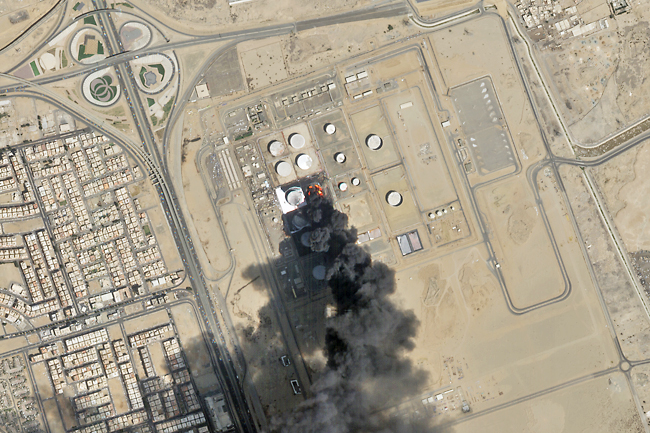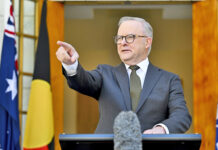DUBAI, UNITED ARAB EMIRATES (AP) – Gulf Arab states gathered for a summit yesterday about the yearslong war in Yemen, which the country’s Houthi rebels are boycotting because it’s taking place in Saudi Arabia.
The decision by the Houthis to skip the summit, called by the Saudi-based Gulf Cooperation Council (GCC), immediately called into question the effectiveness of such a gathering.
The United Nations (UN), diplomats and others have been pushing for another potential cease-fire to mark the month of Ramadhan, similar to efforts for a truce over the past years.
Ramadhan is likely to start this weekend, depending on the sighting of the new crescent moon.
The GCC – a six-nation club including Bahrain, Kuwait, Oman, Qatar, Saudi Arabia and the United Arab Emirates – held closed-door talks in Riyadh.
On Monday, the GCC’s Secretary-General Nayef al-Hajraf held talks with British Ambassador to Yemen Richard Oppenheim and Yemeni officials allied with its internationally recognised but exiled government.

Those talks saw al-Hajraf, a Kuwaiti politician, discuss “efforts to stop the war and ways to achieve comprehensive peace to alleviate the human suffering witnessed by Yemeni people“, according to the state-run Saudi Press Agency. The Houthis, meanwhile, have rejected the summit because of its venue in Saudi Arabia, as well as the continuing closure of Sanaa’s airport and restrictions on the country’s ports by the coalition that is waging war on the Houthis.
The rebels, who over the weekend attacked an oil depot in the Saudi city of Jeddah ahead of a Formula One race there, have called for the talks to be held in a “neutral“ country.
United States Secretary of State Antony Blinken spoke late on Monday with Saudi Foreign Minister Prince Faisal bin Farhan.
The State Department said the two “discussed support for the UN’s proposal for a Ramadhan truce in Yemen and efforts to launch a new, more inclusive and comprehensive peace process“. Yemen’s war began in September 2014, when the Houthis swept into the capital, Sanaa, from their northwestern stronghold in the Arab world’s poorest country. The Houthis then pushed into exile the government of President Abed Rabbo Mansour Hadi, elected in 2012 as the sole candidate after the long rule of Ali Abdullah Saleh.
A coalition entered the war in March 2015 to try and restore Hadi’s government to power.
But the war stretched into long bloody years, pushing Yemen to the brink of famine.
More than 150,000 people have been killed in the warfare, according to the Armed Conflict Location and Event Data Project.



















































